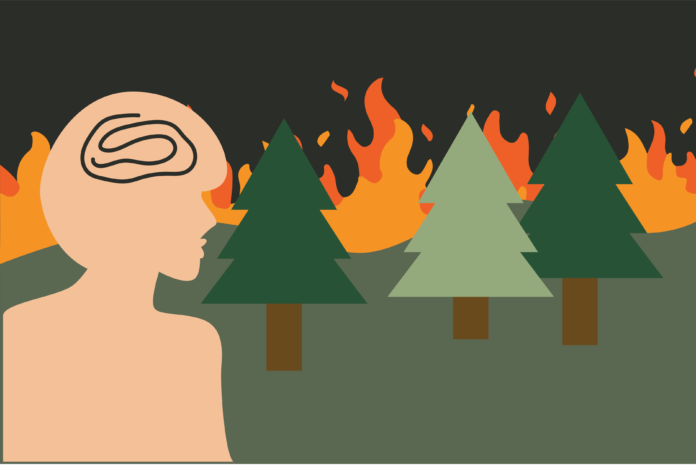The new school year brings new challenges for health-related concerns
With the start of the new school year and the return to in-person instruction, new challenges arise in maintaining the health and wellness of the Davis community. In addition to COVID-19 concerns, Davis residents face fire-related health risks.
While this may be all too familiar for returning students and California natives, the increase in severity and frequency of extreme weather events has necessitated clarifications regarding what measures to take in such situations.
UC Davis Environmental Health Sciences Center Director Irva Hertz-Picciotto explained that these health concerns have not gone unnoticed.
“UC Davis Health faculty are conducting research on the health effects from wildfires,” Hertz-Picciotto said via email. “Major health effects are respiratory symptoms including asthma and wheeze, cough, [and] irritated eyes. Fine particles, which are smaller than 2.5 microns in diameter (1/7th the diameter of a human hair shaft), are harmful and do enter the respiratory tract [and] are associated with higher cardiopulmonary impairments.”
According to Hertz-Picciotto, fires also pose a risk to mental health.
“Major health effects [include] mental health from various fire-related stressors,” Hertz-Piccitto saidl. [This includes] anxiety about the air quality, the growing threats from climate change and, for some people, evacuations.”
Hertz-Picciotto explained that limiting exposure to fine particles is key in preventing fire-related health problems.
“[There are] several ways that students can reduce their exposures,” Hertz-Picciotto said. “Stay indoors as much as possible and if you must go outside or have a ‘leaky’ residence, then wear an N95 mask.”
Hertz-Picciotto said that it is safest to use N95 masks instead of other masks that only block out larger particles.
“The N95 refers to the percent of fine particles that are blocked if the mask has a tight (closed) fit—these are available at hardware stores and other outlets,” Hertz-Picciotto said. “The ‘surgical’ masks that are typically sold at pharmacies are not adequate to block those particles.”
Hertz-Picciotto recommended that students and Davis residents check the particle concentration even when the air doesn’t smell.
“Because the particle concentration in ambient air can be high even when you don’t smell anything, students can go to AirNow.gov to get the current concentrations,” Hertz-Picciotto said. “It’s also on the weather reports on [your] phone.”
UC Davis News and Media Relations Specialist Julia Ann Easley said that in situations of poor air quality, UC Davis makes decisions informed by the best public health practices and scientific research.
“Based on recommendations from a UC systemwide review of air quality protocols, UC Davis has adopted the attached decision matrix and uses the U.S. EPA’s AirNow Current Conditions AQI as its official source of air quality data,” Easley said via email. “The matrix outlines required and recommended actions regarding campus closure, cancellation of classes, athletic events, and other operational considerations.”
Campus services will close based on how critical they are in the event of an emergency or any hazardous conditions, according to Easley.
“UC Davis policy provides for any temporary change to the status of campus operations due to an emergency event or hazardous condition,” Easley said. “The campus may reduce or suspend non-critical functions and services or close facilities at one or more locations.”
Easley recommended that students who have any health-related concerns should contact the Student Health and Counseling Services.
“They can send a message to a nurse or medical provider through the Health-e-Messaging system or make an appointment as well,” Easley said. “SHCS also provides counseling support if students are [experiencing] anxiety or worry about potential fires.”
More information about wildfires as well as guidelines for class cancellations can be found on the UC Davis website.
Fourth-year Neurobiology, Physiology and Behavior major Crystal Tran recalled the class cancellations caused by the 2018 Camp Fire.
“When I was a freshman during smoke week, there was a lot of uncertainty because we didn’t know if we were going back to class or not,” Tran said. “It turned out that we would not go to class for a week.”
Tran explained that while she is worried about more smoke, she is more optimistic about instruction during smokey weeks.
“I’m worried about the smoke and the air quality but I think because of Covid and remote learning for the past year we can switch back online pretty easily,” Tran said. “We won’t have as much uncertainty as back then.”
Written by: Yan Yan Hustis Hayes — city@theaggie.org




